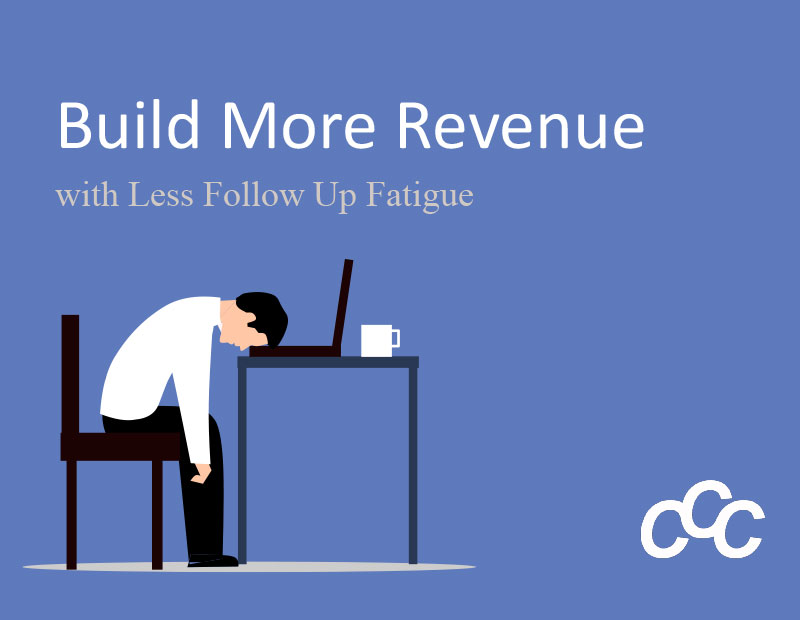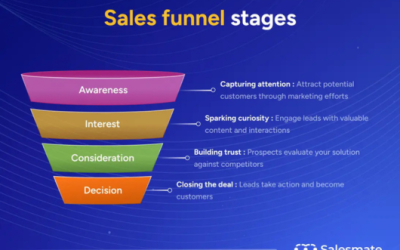Let’s say your salesperson is cultivating a new lead that could turn into a big contract. Unexpectedly, the salesperson has a family emergency and asks another salesperson to take over a scheduled call to close the sale. The other salesperson found some notes about the customer in the business’s shared drive, but the notes were outdated, so they went into the call with inaccurate information (the accurate information is on the original salesperson’s laptop).
The call did not go as planned. The potential customer is frustrated because the call was a waste of time. They have busy schedules, had to repeat the information again to make sure it was accurate, and the sales team was disorganized. The potential customer calls you, the business owner, later in the day to tell you that they decided to pursue a competitor with similar solutions. The big contract was lost.
This is the cost of a disorganized sales team.
The one thing that can turn potential customers away is repeating themselves and doubting if you have retained the right information. Your goal is to build buyer confidence and reduce your buyer’s perceived risk. Looking disorganized leads to lost sales, prolonged sales cycles, increased customer acquisition costs, and greater Follow Up Fatigue (FUF).
Here are some great ways to organize your marketing and sales initiatives using your CRM.
Use your CRM as your “Contact Centric” hub for organizing
Disorganization happens when everyone on the sales team uses their own methods and software platforms to sell and track sales. Each method and platform may be good, however, when methods and software platforms are used in a siloed manner, everyone on the team is left in the dark.
Organized teams work together and collaborate by using the same methods and software. The team is always up to date, so when there is a family emergency, they can confidently have each other’s back. A CRM is necessary for organization.
From marketing through sales, prospects, customers, referrers, and friends are all contacts. Organize your tasks, comments, quotes, service tickets, and emails by contact and have that contact data at your fingertips. Prospects want to believe in you so gather your contacts’ information in one place – your CRM.
Use Email Templates to make it easy for your sales team
When you build a set of commonly used emails as email templates, you make it easy for salespeople. They no longer have to create their own words. Rather, they click on a template, and it automatically fills in specific fields of information. Now, anyone can send out specialized emails when filling in for a teammate who has a last-minute emergency.
When you build a library of email templates, you enforce your standards for content and imagery. Your salespeople should no longer use the old logo or bad grammar as the email templates are preformatted for everyone’s use. Consistent messaging and imagery make you look believable and build buyer confidence.
Use the Sales Funnel to stay current
When you establish your sales process in your CRM, you define the stages a prospect moves through as it moves toward a sale. To track each prospect, your sales team just clicks a button in the prospect’s record to move them through the funnel. Very quickly, you know the status and value of each prospect.
How many sales meetings have you attended that are disorganized and no one is prepared? Once you have set up your sales process, everyone is up to date and meetings focus on finding prospects rather than hearing excuses about why there was no follow-up.
Automate specialized messaging
There are many examples of manual, repetitive tasks completed by marketing and sales specialists. Think about the wide variety of emails you send to prospects. What if some of those tasks were automated? What if specialized messaging was triggered when a prospect moves from one stage of the sales funnel to the next stage?
Use your CRM to send specialized messaging to those prospects that meet specific conditions. Perhaps, the conditions that you set related to a prospect’s industry, geography, or demographics. Regardless of the criteria, buyers like to receive content that is relevant to them.
What message do you send prospects as they move through your sales funnel? Every interaction must build buyer confidence and the buyer’s perception that there is less risk when buying from you.
Lead as the business owner by using your CRM
A CRM is most effective as a central hub when everyone uses it from the top (the business owner and executives) to the technician in the field. You as the owner or head of sales must use the CRM every day if you want your sales team to use it.
Watch the activity logs to see in real-time the latest actions by your marketing and sales teams as they touch your prospects. Lead the team in the following ways:
- Build and share reports that show results and outcomes. Review these reports in sales meetings.
- Expand the CRM’s use through the client cycle so that technical staff gets tasks and assignments based on the stage of each project.
- Analyze your customers’ buying behavior and alert sales staff to reorder cycles.
Show your team that you are using the CRM and your team will follow.
Find a Specialist to help you
Unless you are in the CRM business, you need to find a qualified specialist to help you implement your CRM successfully. Let the specialist meet with your team before the selection so the team gets to tell you what is important. Let your specialist configure the CRM to meet your needs and to train your team in how to use the CRM.
A CRM implementation is not difficult when your team is on board. Using an outside specialist frees you up to run your business. Use the expertise available from your specialist to support your leadership and your team can be up and running quickly.
Conclusion
Disorganization not only eats into your profit with prolonged sales cycles or abandonment by potential customers, it also hurts your reputation as a business. A CRM brings organization back into your marketing and sales teams. If you are looking for a CRM, schedule a demo and learn how X2CRM, an open-source, enterprise-level CRM, can help you be more organized and sell more with less effort.





